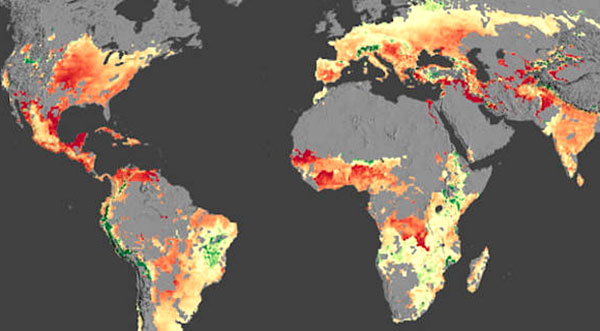BREVARD COUNTY • FLORIDA — 2024 has officially been declared the warmest year on record by NASA since global temperature measurements began in 1880.
The announcement comes from a collaborative analysis involving scientists at NOAA and other leading climate researchers who rely on millions of temperature measurements collected worldwide.
The findings, which are the culmination of extensive data collection and rigorous analysis, point to the unrelenting influence of human activities on Earth’s climate system. Carbon dioxide emissions from burning fossil fuels, deforestation, and other industrial activities have been steadily driving global temperatures upward, creating a long-term warming trend that shows no signs of abating.
Long-Term Trends
While slight variations in global temperatures are natural from year to year and between regions, scientists emphasize that the bigger picture reveals a concerning pattern. The past decade (2014-2024) now ranks as the hottest 10 years on record, underscoring the intensification of climate change impacts over time. The new data is yet another wake-up call for policymakers, industries, and individuals to prioritize urgent climate action.
“This year’s record heat highlights the profound changes our planet is undergoing,” said a NOAA spokesperson. “It’s not just about isolated warm years but about the trajectory we’re on. And that trajectory is being driven by human-induced climate change.”

The Role of Human Activity
Greenhouse gas emissions have created a thermal blanket around the Earth, trapping heat in the atmosphere. Despite global initiatives such as the Paris Agreement to curb emissions and limit warming to 1.5°C above pre-industrial levels, progress has been slow. The average global temperature in 2024 surpassed even pessimistic projections, with devastating consequences.
Extreme weather events tied to rising temperatures—such as prolonged heatwaves, severe droughts, and catastrophic floods—have become increasingly frequent. These events disproportionately impact vulnerable communities, further intensifying existing inequalities.
Time for Action
The record-breaking warmth of 2024 underscores the urgent need for global cooperation in combating climate change. From adopting renewable energy solutions to implementing large-scale conservation efforts, experts stress that every measure counts in mitigating the impacts of a warming planet.
NASA, NOAA, and other scientific organizations continue to monitor and analyze Earth’s climate with precision. Their work offers valuable insights into the planet’s evolving systems, guiding solutions for a sustainable future.
For more information on the latest climate data and trends, visit NOAA’s official page.
This post was originally published on here







